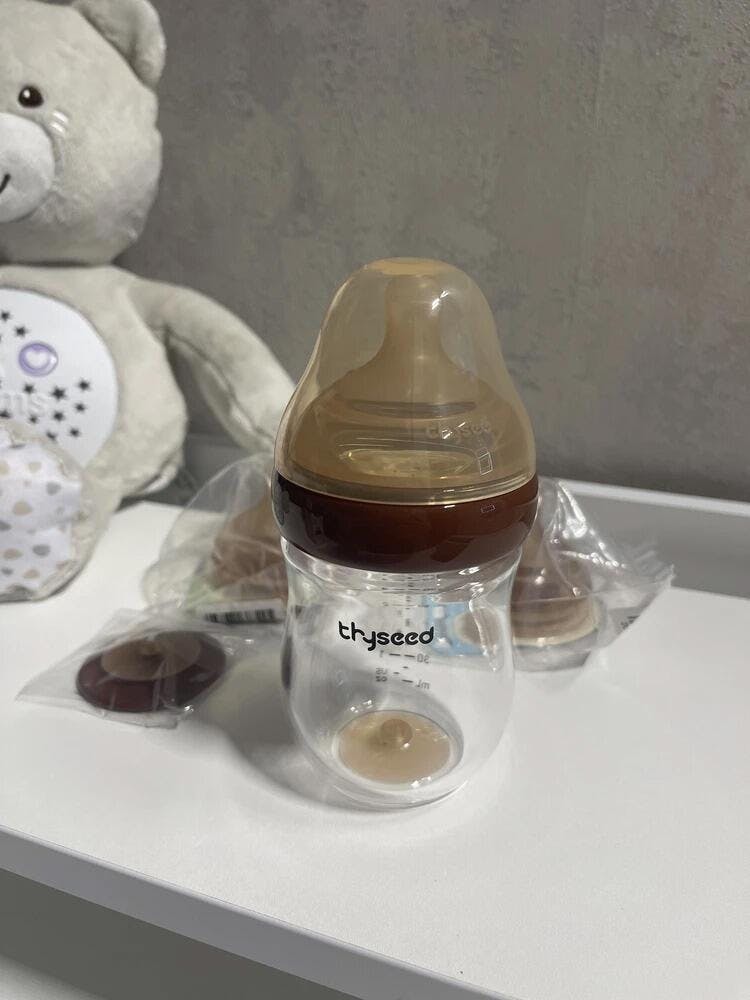Discover the Perfect Glass Bottles for Your Breastfed Baby: Find Your Ideal Match Today!
Choosing the right feeding bottle for your breastfed baby is crucial for both comfort and convenience. While breastfeeding is a natural bonding experience, there are times when a mother may need to use a bottle, whether for convenience or due to work commitments. This is where glass bottles come into play, offering a safe and reliable alternative to plastic. Glass bottles are not only free from harmful chemicals often found in plastics, such as BPA, but they also provide a cleaner taste for the milk. Additionally, glass is easier to clean and sterilize, ensuring that your little one has a safe and healthy feeding experience. With so many options available, it's essential to find the perfect glass bottle that meets the unique needs of your breastfed baby.

Understanding the Benefits of Glass Bottles
Glass bottles offer a plethora of advantages when it comes to feeding your breastfed baby. First and foremost, safety is a significant concern for parents, and glass bottles are made from natural materials that do not leach harmful chemicals into the milk, unlike some plastic bottles. This means you can have peace of mind knowing your baby is consuming milk in a safe container. Moreover, glass bottles are sturdier and more durable than they might appear; while they can break, many brands offer protective sleeves that can absorb shock and prevent accidents. Health-wise, glass bottles are easier to clean; they can withstand high temperatures, making them dishwasher and microwave safe, which is a huge benefit for busy parents. Environmentally, glass is a sustainable option since it is recyclable and reduces plastic waste in our oceans and landfills. By choosing glass bottles, you're not only prioritizing your baby's health but also making a positive impact on the environment.
Key Features to Look for in Glass Bottles for Breastfed Babies
When selecting glass bottles for your breastfed baby, several key features should guide your decision. Firstly, consider the nipple shape and flow rate. Babies who are used to breastfeeding may have a preference for nipples that mimic the breast, which can help ease the transition from breast to bottle. Look for bottles that offer a wide-neck design—this makes it easier to clean and provides a natural latch for your baby. Additionally, the size of the bottle is crucial; smaller bottles are ideal for newborns and can be transitioned to larger sizes as your baby grows. Another aspect to consider is the anti-colic feature; many glass bottles come with specialized vents or valves that help reduce air intake, which can minimize gas and fussiness. Finally, ensure that the bottle is compatible with your breast pump, as this will make it easier to store pumped milk without transferring it into another container.
Top Considerations When Choosing Glass Bottles
Before making a purchase, there are several considerations to keep in mind when it comes to glass bottles. Ease of cleaning is paramount; look for bottles with wide openings that allow for thorough cleaning and are dishwasher safe. Additionally, consider the weight of the bottles; glass bottles are generally heavier than plastic ones, so ensure they are comfortable for you to hold while feeding your baby. Storage options are also vital; some bottles come with storage caps, making it easier to store milk in the fridge without transferring it to another container. Furthermore, think about how the bottles will fit in your lifestyle—if you plan to travel often, consider bottles that come with travel-friendly lids or caps. Lastly, read reviews from other parents to see what features worked well for them, as personal experiences can greatly inform your decision.
Comparing Different Types of Glass Bottles
When it comes to glass bottles, there are various styles to choose from, each with its own set of pros and cons. Standard glass bottles are widely available, offering a classic design that is easy to use and clean. However, some parents may find them a bit heavy for prolonged use. On the other hand, angled glass bottles are designed to promote a more natural feeding position, which can help reduce air intake and make feeding easier for your baby. There are also glass bottles with silicone sleeves, which provide added grip and protection against breakage. While these can be slightly bulkier, they often come in fun colors and designs that appeal to parents. Lastly, hybrid options that combine glass with other materials for better insulation or protection are gaining popularity. Understanding these options will help you choose the best style that suits your needs and preferences.
Making Informed Choices for Your Baby
In conclusion, selecting the best glass bottles for your breastfed baby is an important decision that can contribute significantly to your baby's feeding experience. By understanding the benefits of glass over plastic, knowing the key features to look for, and considering the various styles available, parents can make informed choices that cater to their unique needs. Remember to prioritize safety, ease of use, and compatibility with breastfeeding when making your selection. With the right glass bottle, you can ensure that your baby enjoys a smooth transition from breast to bottle, all while keeping their health and the environment in mind. Happy bottle shopping!








